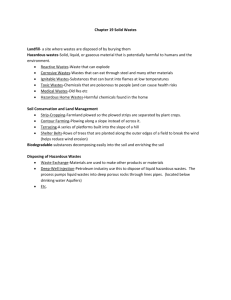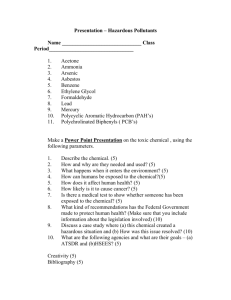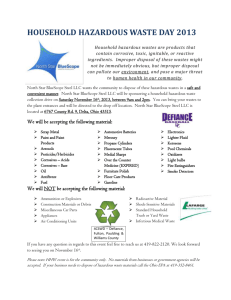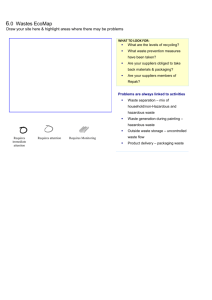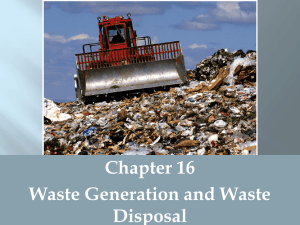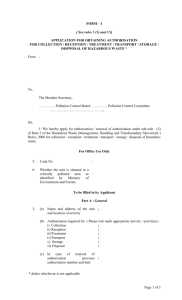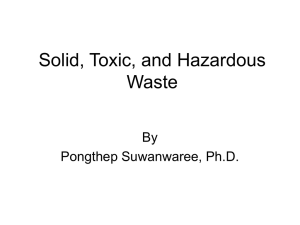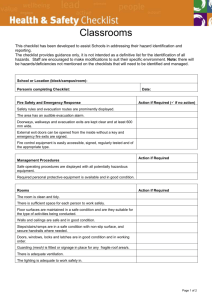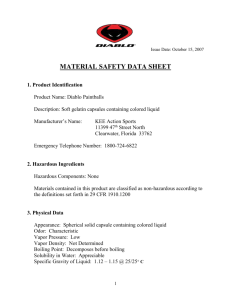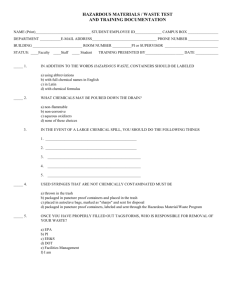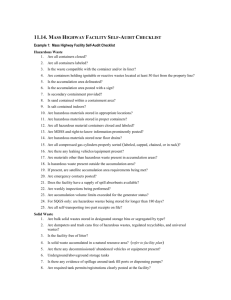EC.04.01.01-EP15-Hazardous-Materials-Annual
advertisement
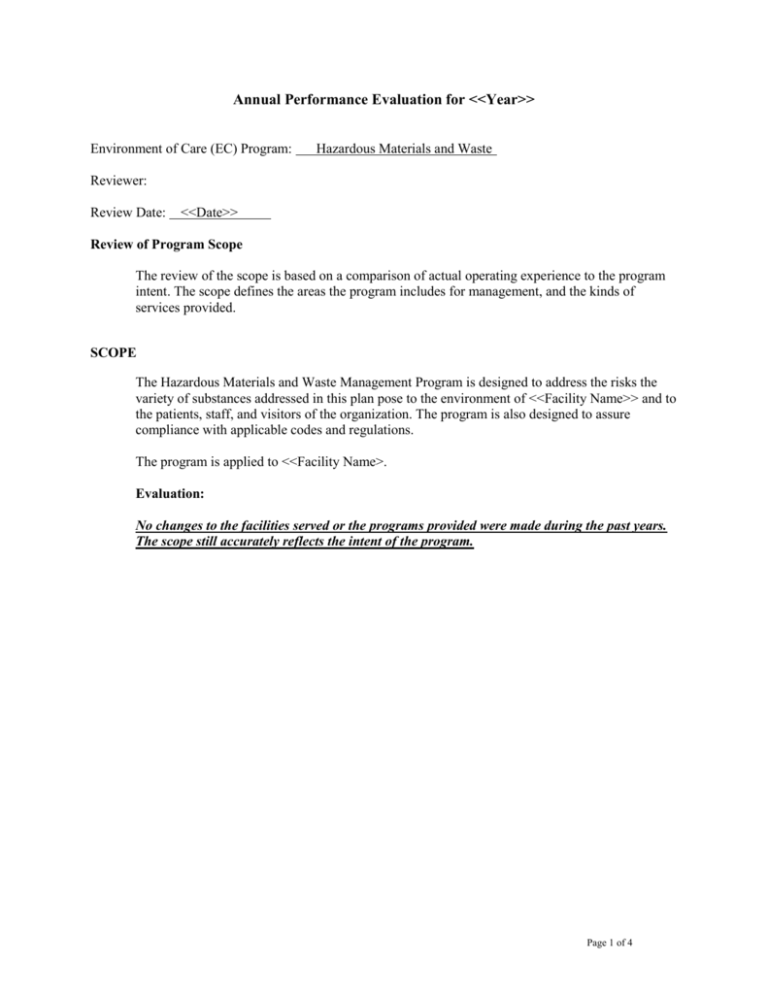
Annual Performance Evaluation for <<Year>> Environment of Care (EC) Program: Hazardous Materials and Waste Reviewer: Review Date: <<Date>> Review of Program Scope The review of the scope is based on a comparison of actual operating experience to the program intent. The scope defines the areas the program includes for management, and the kinds of services provided. SCOPE The Hazardous Materials and Waste Management Program is designed to address the risks the variety of substances addressed in this plan pose to the environment of <<Facility Name>> and to the patients, staff, and visitors of the organization. The program is also designed to assure compliance with applicable codes and regulations. The program is applied to <<Facility Name>. Evaluation: No changes to the facilities served or the programs provided were made during the past years. The scope still accurately reflects the intent of the program. Page 1 of 4 Review of Program Objectives Each management objective is listed in the following table. Each objective is marked as met or not met. If an objective is not met, the appropriate EC program manager(s) review the objective to determine what needs to be done to meet it during the next year. Objectives can be added, deleted, or modified. The action required to address each change is indicated in the last column of the table. Objectives A. The processes used to select, transport, store, use and dispose of hazardous materials, and to separate, segregate, transport, store, package and dispose of hazardous wastes are defined in written procedures. Met √ The written criteria for hazardous materials should be reviewed to be current by the new MSDS Vendor. They will conduct a full inventory during <<Year>>. √ D. Monitoring of gases and vapors, including: formaldehyde, gluteraldehyde, waste anesthetic gases, and ethylene oxide are performed at least annually where used, and the results reported to affected departments, and the EC Committee at least annually E. Inspections are conducted at least annually to assure that areas used to store and handle hazardous wastes have adequate space, are separated from clean and sterile goods and foodstuffs; and hazardous chemicals are stored appropriately to their hazards. Adjusted Objective / Action Plan √ B. Written criteria are used as part of the process to identify and inventory hazardous chemical materials; and are used to identify, evaluate and define hazardous waste and waste handling practices. C. The Hazardous waste programs includes Chemical wastes Chemotherapeutic wastes, where present Radioactive wastes, where present Biohazardous wastes, and Sharps and other physical hazards and each have been reviewed in the past year. Not Met √ Monitoring was performed, and the results will be summarized for the Safety Committee during <<Year>>. √ Page 2 of 4 F. Incidents involving spills, releases, and exposures to hazardous chemicals and wastes are reported, in aggregate, to the EC Committee at least quarterly. G. Staff who handle hazardous chemical materials and/or hazardous wastes are trained about the hazardous of the materials they handle, protective methods, and responses to spills, and exposures. Staff knowledge about personal protection and procedures is conducted at least quarterly, and reported to the EC Committee. H. The performance monitor for hazardous materials and waste is evaluated and reported to the EC Committee at least quarterly. I. Staff who may discover or be part of emergency spills are provided with appropriate training to recognize spills that may exceed the ability to respond at that site, and their knowledge is evaluated at least annually. J. Annual evaluations are conducted of the scope, and objectives of this plan, the effectiveness of the programs defined, and the performance indicators. √ √ √ √ √ Page 3 of 4 Review of Performance The review of performance evaluates the effectiveness of the current performance measures in providing EC managers with information that can be used to adjust program activities to maintain performance or to identify opportunities for improvement. The review also evaluates the effectiveness of any performance improvement projects related to the program. * Current Performance Measure(s) (list) 1. 2. * Percentage of completed Air and gas testing and analysis in high risk areas Percentage of eyewash stations tested Summary of performance reports for the last 12 months. (Attach copies of reports): Performance reports indicate: 1. 2. 100% completion for all air / gas testing 100% completion rate for all eyewash testing 1. Performance is stable, sustainable, and acceptable: __√__ 2. Performance is stable, sustainable, and unacceptable: ____ 3. Performance is unstable: Review of Program Effectiveness Program effectiveness is evaluated by comparing the review of the program to current needs and stated objectives of the program with measurements made related to stated performance measures. Effectiveness is determined based on how well the scope fits current organizational needs and the degree to which current performance met those stated objectives. This program was generally considered to be fully effective. Planning Objectives for <<Year>> 1. Continue programs to reduce total amount of hazardous waste 2. Improve recycling efforts 3. Reevaluate current measures of performance to determine new indicators for <<Year>> 3. Increase staff education safe handling of HAZMAT. Page 4 of 4
